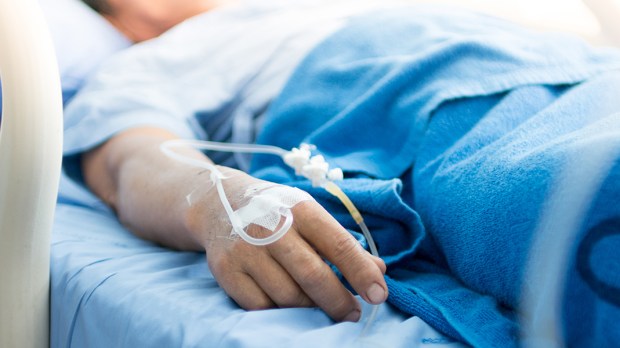Last November 6, a middle-aged man in southwestern England suffered a heart attack at home. His brain was deprived of oxygen for at least 45 minutes. Since then he has been in a coma in hospital.
Specialists told the man’s family that his condition would never significantly improve and thought life-support treatment should end. His wife agreed and told a judge that her husband, identified in court papers only as “RS,” had talked of not wanting to be a “burden.” The man’s mother and sisters disagreed, saying that because of his Catholic beliefs he would not have wanted his life to be ended if it could be saved.
But, according to Plymouth Life, a London-based judge sided with the man’s wife of nearly 20 years, reasoning that she would know his mind better. He determined that it is in RS’s best interests not to receive life-sustaining treatment, including artificial ventilation, nutrition and fluids.
Now, a British Catholic bioethics organization has weighed in, saying the court ruling sets a “worrying precedent.”
The Anscombe Bioethics Center in Oxford pointed out that RS was described as a “practicing Catholic” who had voiced opposition to euthanasia in the past. Although his wife reported that he once said he would never want to be a burden if he was seriously ill, such a statement should not be taken to sanction the withdrawal of basic care such as food and water, Anscombe argued.
“When, as in the RS case, a Catholic is known to uphold the Church’s teaching on pro-life issues and is not known to dissent from the Church’s teaching on these issues, then this should guide the interpretation of the person’s previous statements,” said the statement, signed by Anscombe’s director, David Albert Jones.
Jones called it “regrettable” that the Court of Appeal noted that expert opinion on the view of the Catholic Church was not thought appropriate in this case. “Had such evidence been presented it might have helped the interpretation of the remarks made,” Jones said. He continued:
… perhaps the most concerning element of all in this judgment is that the Court takes statements about not wishing to be “a burden” to others as a valid reason to deprive the person of life-sustaining treatment or care. This conception of feeling oneself a burden needs to be challenged. The idea that those who receive treatment, care or sustenance are a burden on those who provide it is deeply insidious, though regrettably common.
Jones quoted a story related by Australian Catholic bioethicist Nicholas Tonti-Filippini to illustrate the “oppressive effect of the idea of being a burden on disabled people:
For several years, until I objected, I received from my health insurer a letter that tells me how much it costs the fund to maintain my health care. I dreaded receiving that letter and the psychological reasoning that would seem to have motivated it. Each year I was reminded how much of a burden I am to my community. The fear of being a burden is a major risk to the survival of those who are chronically ill.
“All members of society are dependent on others to a greater or lesser degree and society exists for the good of all its members,” Jones concluded. “If someone is physically ill but conscious then their feeling of being a burden can be addressed by carers and loved ones assuring them that their lives remain valuable and they are not regarded as a burden.”
If someone has made a legally binding advance decision to refuse clinically assisted nutrition and hydration, and is now unconscious, it might not be possible under current law to show them this care, Jones lamented. But if such opinions were expressed only verbally or informally as fears, “then we show that these fears were unfounded by willingly giving this care,” he said. “If a patient has previously expressed a wish ‘not to be a burden if they should become seriously ill,’ and is now unable to communicate, then we best honor this prior wish by providing good quality care, including food and fluids by clinical assistance if required, without considering such care to be a burden.”

